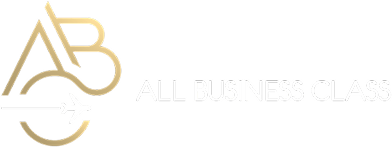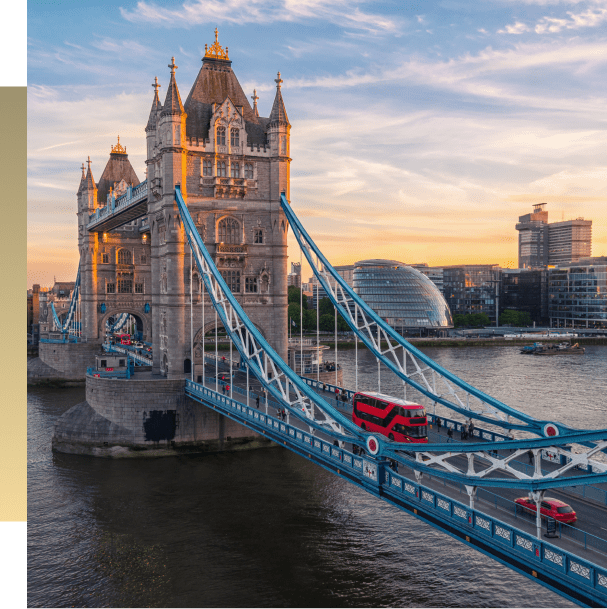Are you ready to take off on a journey that combines work and adventure? Buckle up as we dive into the world of business travel! Whether it’s jetting across continents or hopping on a bus for a short trip, business travel is an essential aspect of many companies. It’s not just about getting from point A to B; it’s about exploring new opportunities, sealing deals, and building connections. Companies understand the value of sending their employees on business trips – it’s an investment in growth and success. From foreign travels to local excursions, these trips serve various purposes: attending conferences, meeting clients, conducting market research, or simply expanding horizons. With travel expenses covered by businesses big and small, employees get to enjoy unique experiences while accomplishing their work assignments. So grab your boarding pass and let’s embark on this exciting journey together!
Maximizing Your European Business Travel: A Guide for Travelers London, UK
Tips for planning a successful business trip to London, UK
- Research the visa requirements for traveling from North America to the United Kingdom.
- Book your flights well in advance to secure the best deals and convenient travel times.
- Ensure your passport is valid for at least six months beyond your planned departure date.
- Familiarize yourself with the local currency and exchange rates before arriving in London.
- Make sure to pack appropriate clothing for the weather conditions in London during your visit.
Must-visit landmarks and attractions in London during your business trip
Take a stroll along the iconic River Thames to enjoy breathtaking views of landmarks such as:
- The Tower Bridge
- The Houses of Parliament
- The London Eye
Explore historical sites like:
- Buckingham Palace
- The Tower of London
- St. Paul’s Cathedral
Immerse yourself in culture by visiting world-renowned museums and galleries including:
- The British Museum
- Tate Modern
- The National Gallery
Recommendations on local transportation options in London
Utilize the efficient public transportation system, including:
-
- The Underground (commonly referred to as “the Tube”)
- Buses that cover the entire city
Consider using ride-hailing services like Uber or Bolt for convenience and ease of travel.
Insights into the best hotels and accommodations for business travelers in London
- Stay at centrally located hotels near major business districts like Canary Wharf or The City.
- Opt for hotels that offer amenities tailored towards business travelers, such as:
1. High-speed internet access
2. Business centers with meeting rooms
Remember, maximizing your European business travel experience starts with careful planning, exploring must-visit landmarks, utilizing local transportation options effectively, and choosing suitable accommodations. London, UK offers a vibrant and diverse experience that will surely enhance your business trip.
Importance of Business Travel for Professionals
Enhancing Professional Development and Networking Opportunities
Business travel is a must for professionals seeking to enhance their skills and expand their network. It offers numerous benefits that cannot be achieved through work conducted solely at the office or remotely. By engaging in face-to-face meetings, professionals can establish meaningful connections and foster strong relationships with clients and colleagues alike. These interactions provide an opportunity to showcase expertise, exchange ideas, and collaborate on projects.
Building Strong Client Relationships through Face-to-Face Meetings
Nothing beats the power of face-to-face communication. Personal interactions allow professionals to better understand their clients’ needs, preferences, and expectations. This deeper understanding enables them to tailor their services accordingly, leading to increased client satisfaction and loyalty. Business travel provides an avenue for professionals to engage in activities outside of work purposes, such as team-building exercises or social outings with clients.
Experiencing Different Cultures for Personal Growth
Business travel not only benefits professionals on a professional level but also enriches their personal lives by exposing them to diverse cultures. Immersing oneself in different environments allows individuals to broaden their horizons, develop cultural sensitivity, and gain a global perspective. Through these experiences, professionals can adapt more easily to new situations and become more adaptable employees or contractors.
IRS Rules and Regulations for Business Travel Deductions
The IRS has established specific rules and regulations regarding the deduction of business travel expenses on your income tax return. Understanding these guidelines is crucial to ensure you claim the correct deductions and avoid any issues with the IRS. Here’s an overview of what you need to know:
Qualifying Expenses
To be eligible for a deduction, your business travel expenses must meet certain criteria set by the IRS. This includes expenses that are ordinary and necessary for your trade or business. Examples of deductible expenses related to business travel include transportation costs (such as airfare or mileage), lodging, meals, and incidental expenses.
Tax-Deductible vs. Non-Deductible Expenses
It’s important to differentiate between tax-deductible and non-deductible expenses. While most qualifying expenses can be deducted, there are some exceptions and special rules to consider.
- Standard Mileage: If you use your personal vehicle for business travel, you may be able to deduct mileage using the standard mileage rate provided by the IRS.
- Standard Meal Allowance: The IRS allows a standard meal allowance deduction for certain types of business trips, which simplifies record-keeping requirements.
- Diem Rates: For government employees or those working in specific industries, per diem rates may apply instead of actual expense deductions.
Documentation Requirements
Proper documentation is essential when claiming deductions on your business travel expenses. The IRS requires detailed records that support your claims, such as receipts, invoices, itineraries, and other supporting documents. It’s crucial to maintain accurate records throughout your trip to substantiate your deductions.
Remember that these guidelines provide a general understanding of the IRS rules and regulations for deducting business travel expenses. For more specific information tailored to your situation, consult with a qualified tax professional or refer directly to the IRS publications related to this topic.
By following these guidelines and ensuring compliance with the IRS regulations, you can confidently claim deductions for your business travel expenses while avoiding any potential audit or penalty issues.
Effective Strategies for Correctly Deducting Business Travel Expenses
Keeping Accurate Records and Receipts
To ensure you can claim deductible business travel expenses, it’s crucial to maintain accurate records and receipts. Here are some tips to help you stay organized:
- Keep a dedicated folder or digital file for all business expense-related documents.
- Make sure your receipts include the date, amount, vendor name, and description of the expense.
- Use apps or software that allow you to scan and store digital copies of your receipts.
- Log any necessary details about the purpose of the expense or the business activity it relates to.
Allocating Expenses between Personal and Business Activities
When traveling for both personal and business purposes, correctly allocating expenses is essential. Here are some strategies to consider:
- Separate costs: Clearly distinguish between expenses incurred solely for business purposes and those that have a personal component.
- Proportional allocation: Allocate expenses based on the percentage of time spent on each activity (e.g., meetings vs. leisure).
- Reasonable estimates: When precise allocations aren’t feasible, make reasonable estimates based on your best judgment.
Deductible Business Travel Expenses
Understanding what qualifies as deductible business travel expenses is vital when claiming deductions. Here are some examples:
- Transportation costs (e.g., airfare, train tickets)
- Accommodation expenses during business trips
- Meal expenses directly related to conducting business
- Entertainment expenses incurred while entertaining clients or prospects
- Incidental expenses like taxi fares, tips, and laundry services
- Necessary communication costs (e.g., phone calls, internet access)
Remember that documentation such as receipts should substantiate these deductions.
Choosing a Deduction Method
Depending on your circumstances, you can choose between two common methods for deducting travel-related vehicle expenses:
- Actual Cost Method: Calculate actual vehicle-related expenses like gas, maintenance, insurance premiums, etc.
- Standard Mileage Rate Method: Multiply the number of business miles driven by the IRS-approved standard mileage rate.
Consider consulting with a tax professional to determine which method is most suitable for your situation.
By implementing these effective strategies, you can ensure that you correctly deduct your business travel expenses. Remember to maintain accurate records, allocate expenses appropriately, understand deductible expenses, and choose the right deduction method.
Conclusion: Tips for Optimizing Business Travel Deductions
In conclusion, optimizing business travel deductions is crucial for maximizing your financial benefits while on the go. By understanding the IRS rules and regulations surrounding these deductions, you can ensure that you are correctly deducting your expenses and avoiding any unnecessary penalties.
Throughout this guide, we have explored various strategies to help you make the most of your business travel deductions. From keeping track of receipts and documenting expenses to understanding tax deductions for foreign travel, these tips will assist you in navigating the complexities of claiming deductions.
To optimize your business travel deductions effectively, it is essential to stay organized and maintain accurate records of all relevant expenses. By doing so, you can confidently claim what is rightfully yours without running into any issues with the IRS.
Remember to consult with a tax professional or accountant who specializes in business travel deductions if you have specific questions or concerns about your individual situation. They can provide personalized advice tailored to your needs and ensure that you are taking full advantage of available deductions.
So, whether you’re a seasoned traveler or just starting out on your professional journey, implementing these tips will help you optimize your business travel deductions and save money along the way.
Are You Ready to Jet Off in Business Class Without Breaking the Bank?
At All Business Class, we’re not just about flights – we’re about crafting unforgettable journeys. Whether you’re dreaming of sinking your toes in the sand of a tropical island, traversing the grandeur of Europe, savoring a culinary odyssey in Asia, or setting sail on an idyllic ocean cruise, we’re here to turn your dream into reality.
But why stop at personal adventures? If your company is gearing up for an international conference or a critical overseas meeting, let us make it seamless for you. We specialize in crafting the finest corporate travel experiences, guaranteeing top-notch business-class flights and unbeatable pricing for your team.
Remember, we’re not just planning a trip but curating your next unforgettable story. To help us tailor the perfect experience for you, we’re eager to understand your unique travel needs and desires. Choose your dream destinations, and we’ll handle the rest!
Whether you prefer an in-person visit to our office, a quick call to us at (800) 769-7857, or simply filling out our online contact form, we are at your disposal. We’re ready to discuss everything from individual to group pricing, itinerary options, and the best deals on business-class flights.
Your dream destination awaits, and at All Business Class, we can’t wait to help you plan and book the journey of a lifetime!

